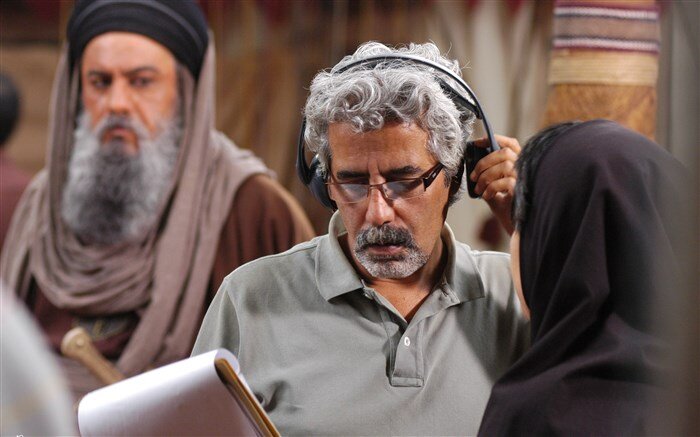Filmmaker Darvish asks entertainment channels to help globalize Iranian cinema

TEHRAN – Filmmaker Ahmadreza Darvish has asked Iran’s international entertainment channels to help globalize the country’s cinema.
Darvish, the director of the controversial film “Hussein, Who Said No” in speaking on Saturday to iFilm Plus, a program aired by the Iranian entertainment network iFilm, which consists of three channels in English, Arabic and Persian, said that the idea that Iranian cinema is universal is nothing but an illusion.
“Unfortunately we are under the delusion of being universal in cinema, but I don’t think this is true,” he added.
“Even in the capitals of Islamic countries not many individuals seek after Iranian cinema. For example in the neighboring Afghan city of Mazar-i-Sharif, which enjoys the same language and culture, no Iranian films are seen in their film markets and buyers are mostly after Chinese and Thai movies,” Darvish said.
“Under such a condition, the role of a channel like iFilm and other entertainment satellite channels is doubly felt,” he added.
“The establishment of iFilm was a very clever decision and needs to be developed with new forms day by day,” he said.
He also talked about the topics of films that Iranian filmmakers need to choose for their international productions.
“A film on a situation which has no specific time and place will remain everlasting. Today, communications are not limited. Our films must represent the Islamic and national characters of their producers. However, they need to be comprehensible for international audiences, and this is a principle for a universal film. The more the film concerns a global issue, the longer it will endure,” he explained.
“Today, there are thousands of TV channels in the world and there is tight competition, therefore achieving a global status is getting harder,” he said.
“We need to make better use of cultural affinities with other countries. Here, the role of channels like iFilm and Iran’s international entertainment channels become more significant,” he concluded.
Darvish’s latest movie “Hussein, Who Said No” about the uprising of Imam Hussein (AS) against the Umayyad dynasty in 680 CE provoked controversy when several top clerics and certain people slammed the film over its depiction of some Shia saints.
The film was banned in Iran in 2015 hours after its premiere following protests by the clerics.
The film, which has been dubbed into several languages including Arabic and English, won the grand prize for the best full-length feature at the 7th Baghdad International Film Festival in 2015.
“Duel”, “Kimia” and “Last Flight” are among Darvish’s noteworthy credits.
Photo: Ahmadreza Darvish in an undated photo.
RM/MMS/YAW
Leave a Comment